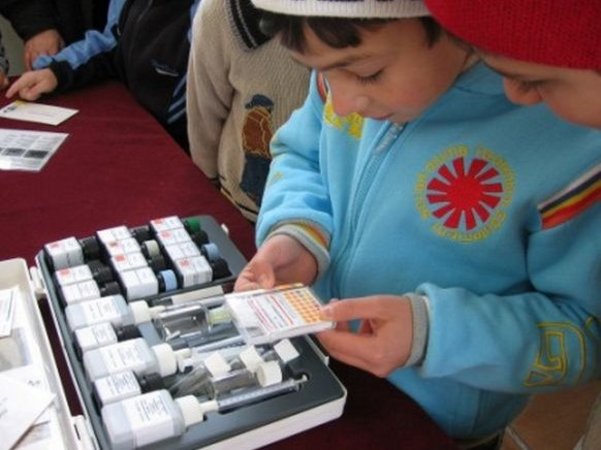Introduction of New Teaching and Learning Strategies
The importance of teaching new key competences needed in an increasingly diverse, globalised society and in rapidly changing labour markets is a fundamental concern in the field of education. This, in combination with the need for more competence-oriented teaching, has made the development and introduction of new teaching/learning forms and settings a further priority of reforms in all fields of education; this also involves the development of corresponding teacher training and in-service courses and structures.
The OeAD’s work focuses on the exchange of experience in the areas of competence-based learning and performance assessment, new settings for teaching and learning key competences, and the individualisation of teaching and learning processes. Interdisciplinary issues such as dealing constructively with diversity and difference for sustainable development are important areas of emphasis in this context.
Project example: Introduction of education standards using the example of mathematics and social competences.
Odesa and the Odesa region: The introduction of the new education standards is one of the challenges that educational institutions in Ukraine face. New education standards were developed and passed into law, recognised by the Ministry of Education and Science, and have been incrementally introduced since 2012. New textbooks and guidelines are available but there is still need for support in the practical implementation of education standards as well as their application in the classroom. This requires new learning and teaching strategies and, consequently, new further education offerings for teachers. Education standards in Ukraine are introduced subject by subject and each covers several subject areas. For example, in the subject of elementary mathematics the Odesa Regional In-Service Teacher Training Institute (LFI) and the methodology centres were supported in the framework of this project by experts from the University College of Teacher Education Upper Austria to develop training programmes and support measures for teachers to implement the standards at the elementary school level and subsequently to jointly pilot the standards. The project results have been summarised in a publication.
An analysis of the project results showed that it is particularly necessary to intensify the implementation of open learning in order to create learning settings that enable social learning on the part of the pupils in addition to imparting subject matter skills. In the course of quality development at the Odesa Regional In-Service Teacher Training Institute the institute’s course offering is adapted to competence-based modules. At the same time modules on democratic education, IT, culture, and entrepreneurship were already introduced; social skills are also covered in the project.
Facilitating the acquisition of social skills requires more than merely implementing appropriate methods. An interplay between the use of methods and a reflection on the application and experience of social skills through the expansion of self-competence is needed to enable a complete implementation of teaching/learning settings for the acquisition of social skills. This necessitates that all persons involved go through these processes, a practice that is ensured within the framework of this project and supported and facilitated by Austrian experts, including those from the University College of Teacher Education Upper Austria.
The main target groups are young teachers at pilot schools in the Odesa region as well as methodologists from the Odesa Regional In-Service Teacher Training Institute and the regional methodological centres. Methods for teaching social skills in schools will be piloted on the basis of these learning processes. The further education offering of LFI Odesa is adapted based on the teachers’ training needs and staff are trained to teach the new methods.
Project example: Competence-based learning portfolios, Albania
The Albanian Ministry of Education began introducing a nationwide competence-based curriculum in the 2016/17 school year.
The OeAD supported the implementation of competence-based teaching and learning through the development and introduction of a learning portfolio for pupils in subjects such as their native language, mathematics, natural sciences, social sciences, and IT. In the project training programmes for mentors, monitoring institutions, and teachers were developed. Representatives of 13 regional education directorates, 30 school administrators, and 100 teachers from 30 schools were trained in the introduction of the learning portfolio. These schools serve as resource centres for the introduction of the learning portfolio at other schools.



